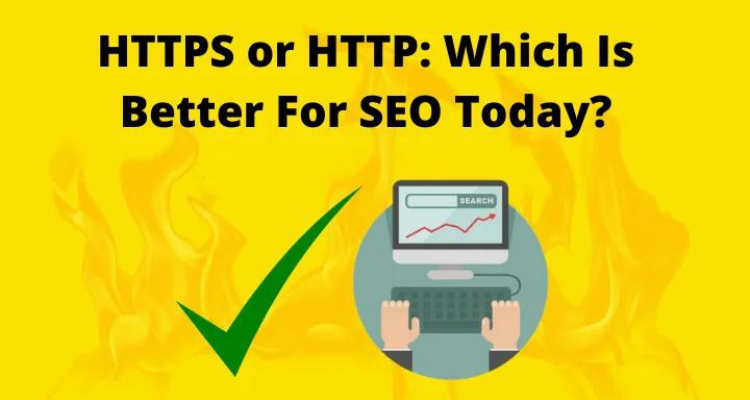In March 2014, Matt Cutts, an American software engineer and is the former head of the web spam team at Google, gave the audience at SMX West a tip that making a site secure (SSL encryption ) was going to trend in 2014. He wanted to make sure that sites that utilize SSL encryption would see a ranking boost within Google, but at the time there were some individuals at Google that did not agree with him. But, only a couple of weeks ago, Google announced that using SSL encryption will provide sites a ranking boost within Googles search engine results pages (SERPs). Google also stated that the prime reason behind this move was over security and that they have started to see more and more webmasters adopting HTTPS.
If you have been doing online searches, you’ve probably noticed both HTTP and HTTPS sites. What is the difference between the two, and is it vital in terms of online marketing? In this informative post, we are going to tell everything, so read till the end.
HTTPS Vs HTTP
- HTTP: Hypertext Transfer Protocol
HTTP is a system for transmitting and receiving information over the Internet. HTTP, an application layer protocol, that means its focus is on how information is presented to the user. But, this option doesn’t care how data gets from Point X to Point Y.
- HTTPS: Secure Hypertext Transfer Protocol
The S at the end of the HTTP part of an URL means the website is secure. HTTPS was developed to let authorization and secured transactions. Also, exchanging confidential information requires to be secured so as to prevent unauthorized access, and HTTPS makes this happen. HTTPS is identical to HTTP in many ways, as it follows the same basic protocols. But, HTTPS provides an extra layer of security as it uses SSL (Secure Sockets Layer) to move data. So, we can say HTTPS is just the secure version of HTTP. So, if users are guaranteed to have a secure website experience, then the answer to HTTP vs HTTPS becomes simple and they will prefer HTTPS.
Some Quick Facts about Secure Sites:
- About 85% users would abandon a purchase if the data sent over an insecure (HHTP) connection, indicating that the site insecurity could impact sales.
- Google Chrome labels HHTP sites as insecure and warning users that the connection is not secure.
- HTTPS websites load faster than HTTP and websites with faster loading speeds are more likely to rank better in search engines.
- About 40% of Google page one organic listing are HTTPS
- Since 2014, HTTPS has been a signal in Google’s Ranking Algorithm
- Over 50% of all desktop page loads are HTTPS connections, which is an all-time high.
SEO Advantages Of Switching To HTTPS
Switching to HTTPS will benefit you and the security of your site. Below are some key benefits:
Security
HTTPS includes security for your SEO goals and website by preventing tampering by third parties as well as making your site more secure for visitors. Apart from this, the encryption in the communication and URLs (Uniform Resource Locators) protects the transaction and browsing histories.
CTR
When compared to the blogs that do not run on SSL, you get high click through rate. We know that Click through Rate plays a big role in ranking boost.
Privacy
A lot of people believe that HTTPS provides protection only to websites using sensitive passwords. We really want to tell them that is it wrong. Even regular content sites benefit from SSL encryption. It affirms the website is the one the Web server must be conversing with.
Rankings
Back in 2014, it was confirmed by Google that the slight ranking boost of HTTPS sites. Therefore, SEOs and webmasters need to keep this point in mind.
The Process For Switching To HTTPS From HTTP?
The basic steps are:
1) Purchase an SSL certificate and a dedicated IP address from your web hosting company,
2) Install and configure the SSL certificate,
3) Configure any hard internal links within your website, from HTTP to HTTPS,
4) Update any code libraries (Like JavaScript, Ajax, etc) and any third-party plugins,
5) Redirect any external links you control to HTTP,
6) Update access applications to redirect HTTP traffic to HTTPS,
7) update your CDN’s SSL settings if you are using a content delivery network (CDN),
8) Implement 301 redirects on a page-by-page basis,
9) Update any links you use in marketing automation tools,
10) Update any landing pages and paid search links and
11) Set up an HTTPS site in Google Search Console and Google Analytics.
You shouldn’t be worried about switching HTTPS from HTTP as far as SEO is taken up. Google has been advising web administrators it is safe to do so for years now.




